Loíza: A Community of Persistence
Scroll/drag down to begin photo experience
Loíza, Puerto Rico, is a lively and joyful community that bands together in the face of continued adversity. Through dance, service, worship and education, Loíza represents the broader resistance of the Puerto Rican people.
An ancient cultural expression, Bomba was created in the 1600s by enslaved people in Loíza to communicate when language was a barrier. Today, it is an act of protest, a method of self-expression and sometimes an act of joy. It isn't a performance done for the audience; it is a dancer’s own experience.
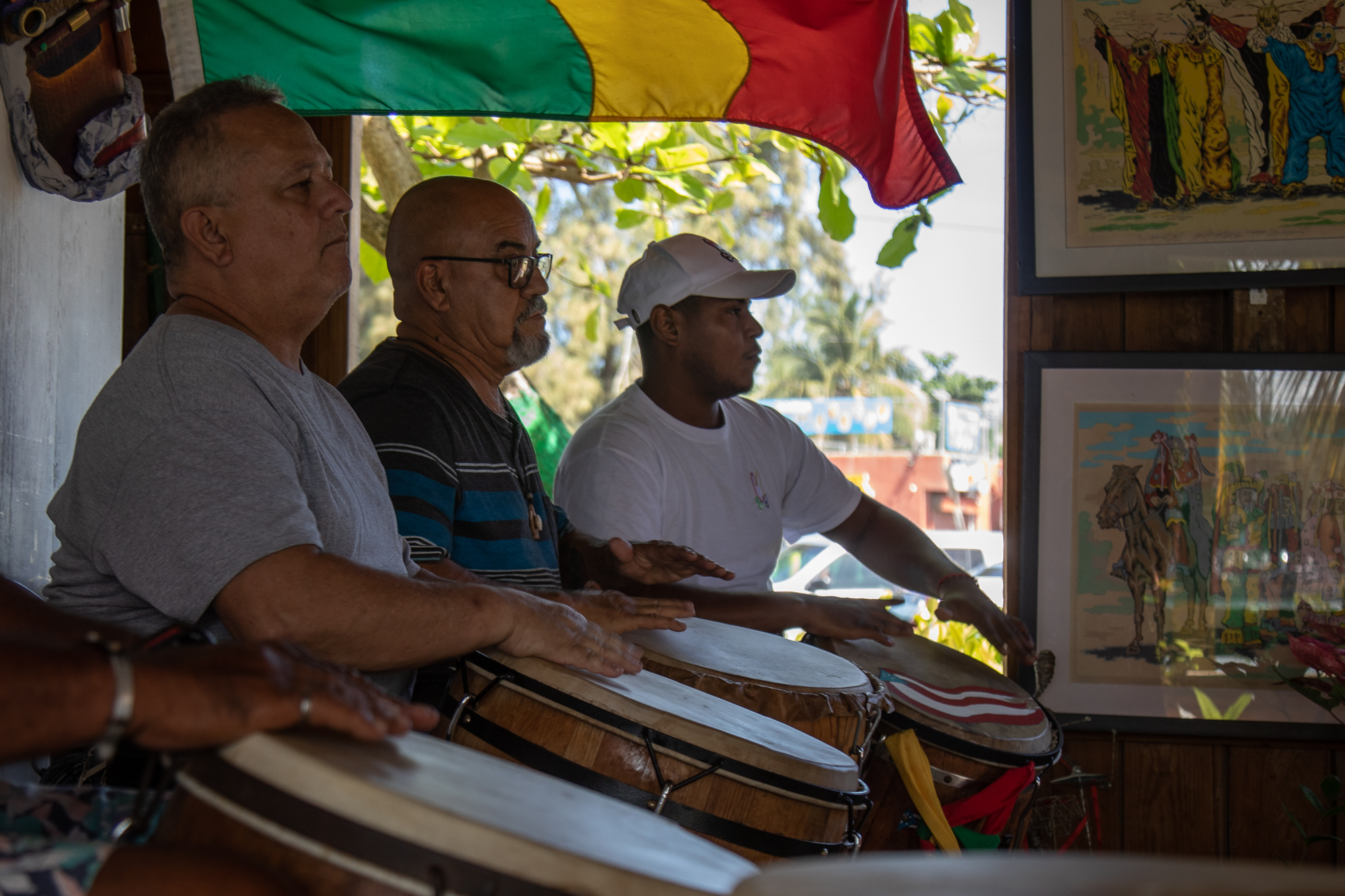
Bomba is an improvisational style of dance that begins with a solo dancer approaching a group of percussionists. The dancer's movements direct the music — instead of music guiding the dance. The drums are just as important as the dancer in creating Bomba's unique style.
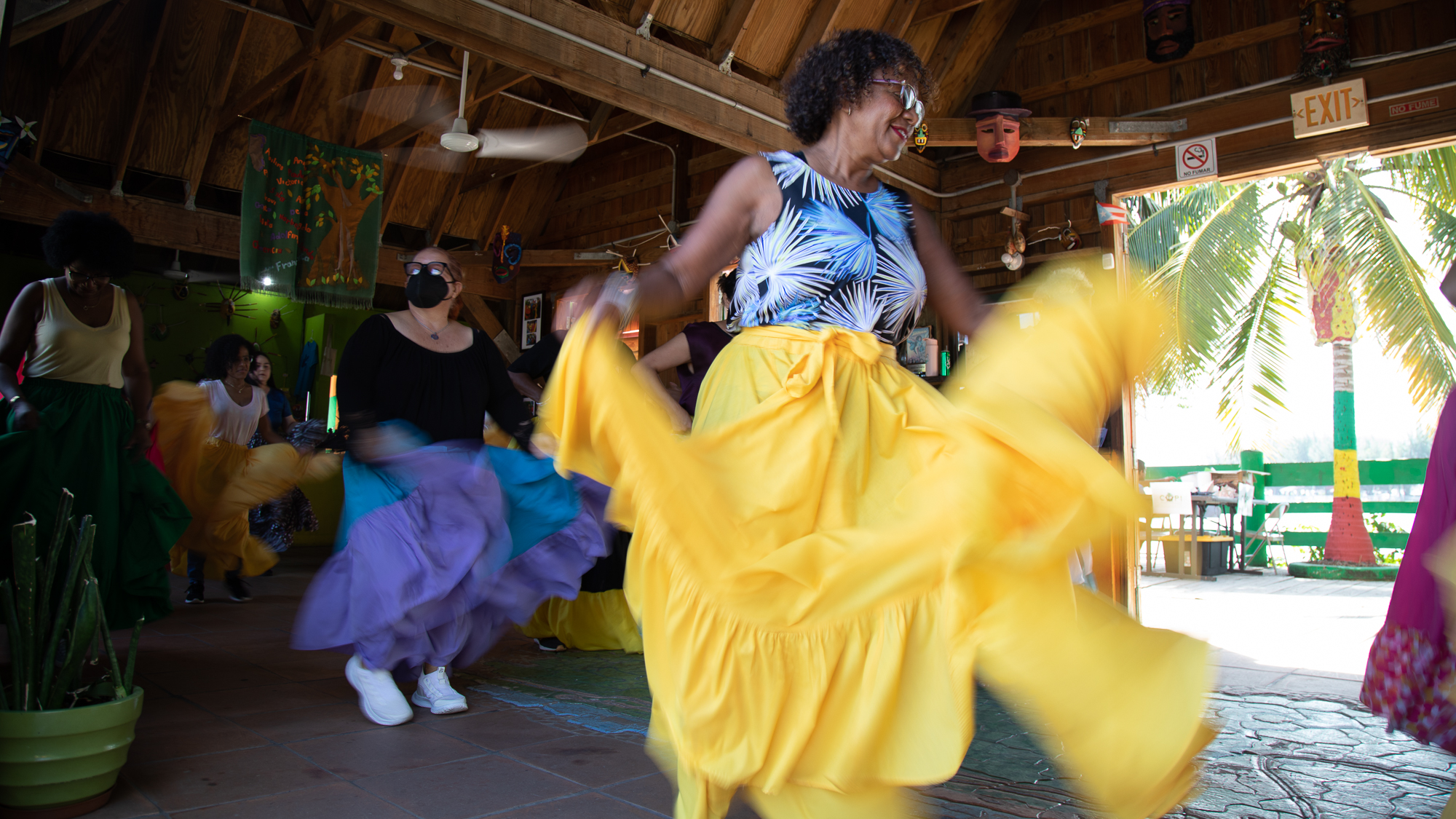
Migdalia Fargas, from Carolina, Puerto Rico, dances Bomba during a Sobera'o at Corporación Piñones Se Integra, a nonprofit based in Loíza dedicated to providing cultural activities for the community. Fargas’ smile never faded as she danced — a testament to the spirit of the dance.

A composting and organic farming workshop takes place at a Loíza community center. Israel Diaz tills the ground where the garden will grow. The workshop aims to teach the community how to be self-sufficient in their farming practices.
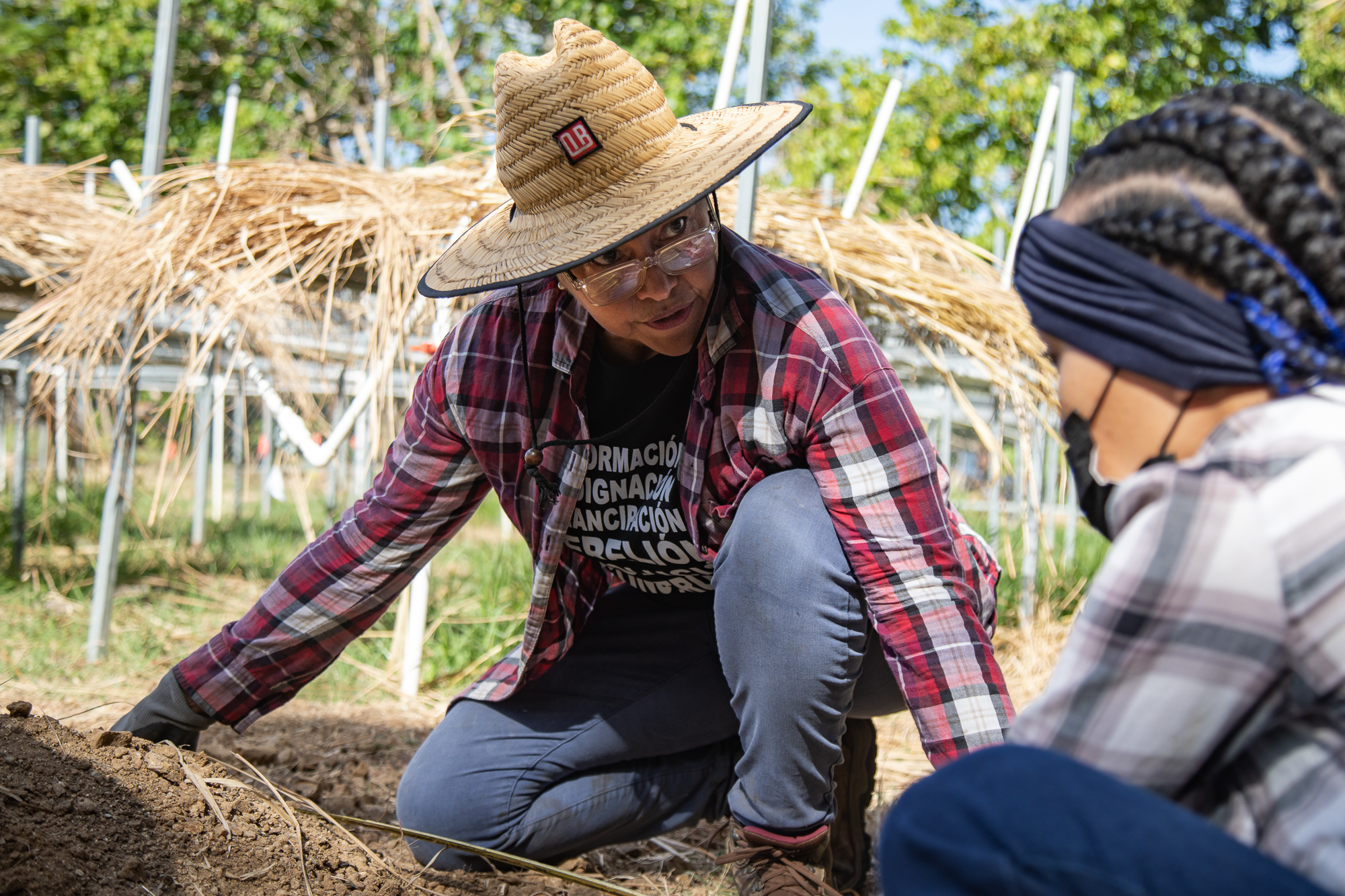
Clara Rivera Pacheco is the organizer of the gardening workshop. She was born in Puerto Rico but moved to New Jersey to raise her children. Eleven days after Hurricane Maria made landfall in Puerto Rico, she returned to uplift her community.
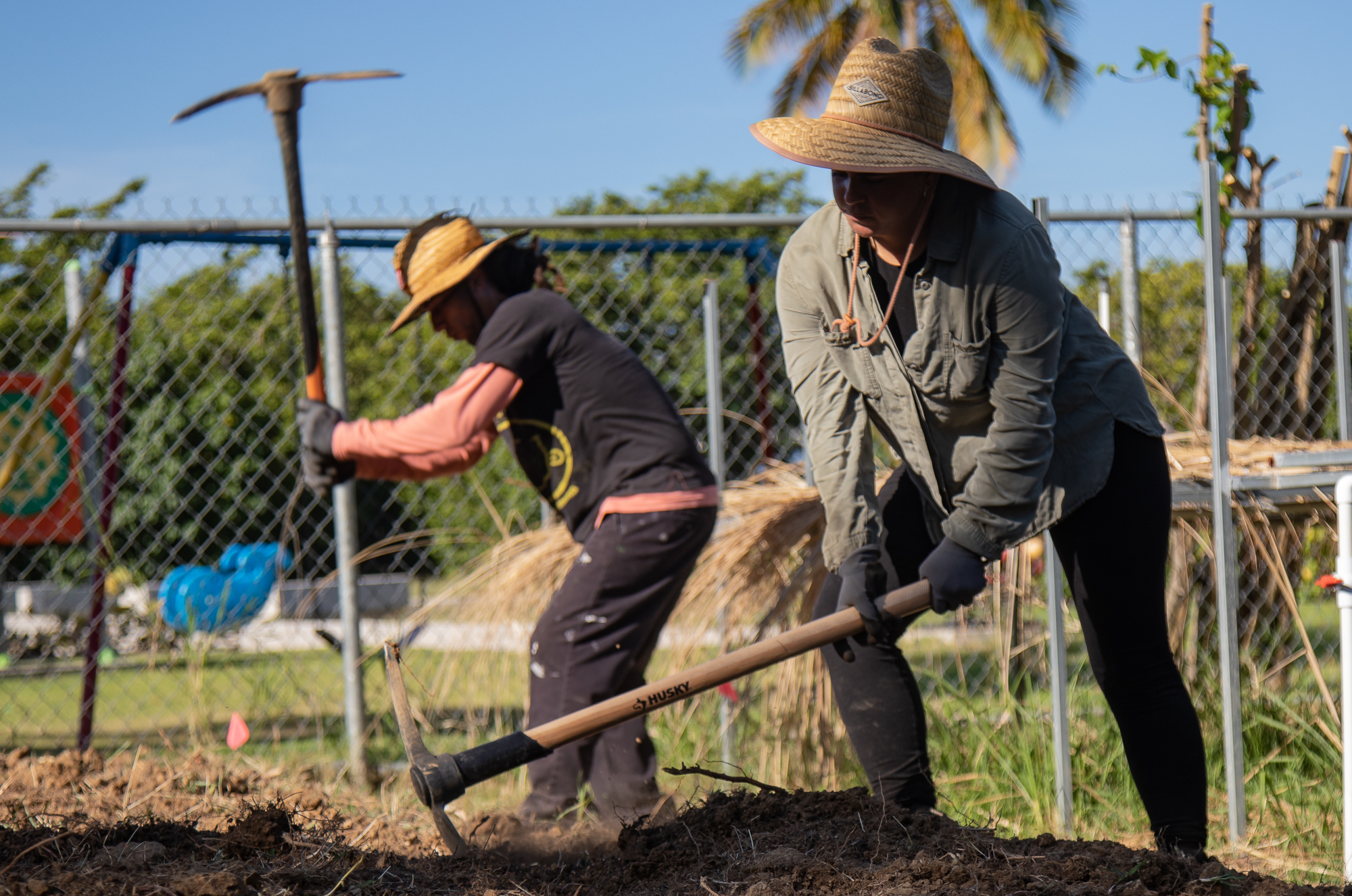
“It requires this action, and so we do this,” Pacheco said. “I think that one of the most empowering things for anyone is the ability to produce their own food, completely free of chemicals, completely free of pressure.” Community members seek autonomy from a government they feel has neglected them.
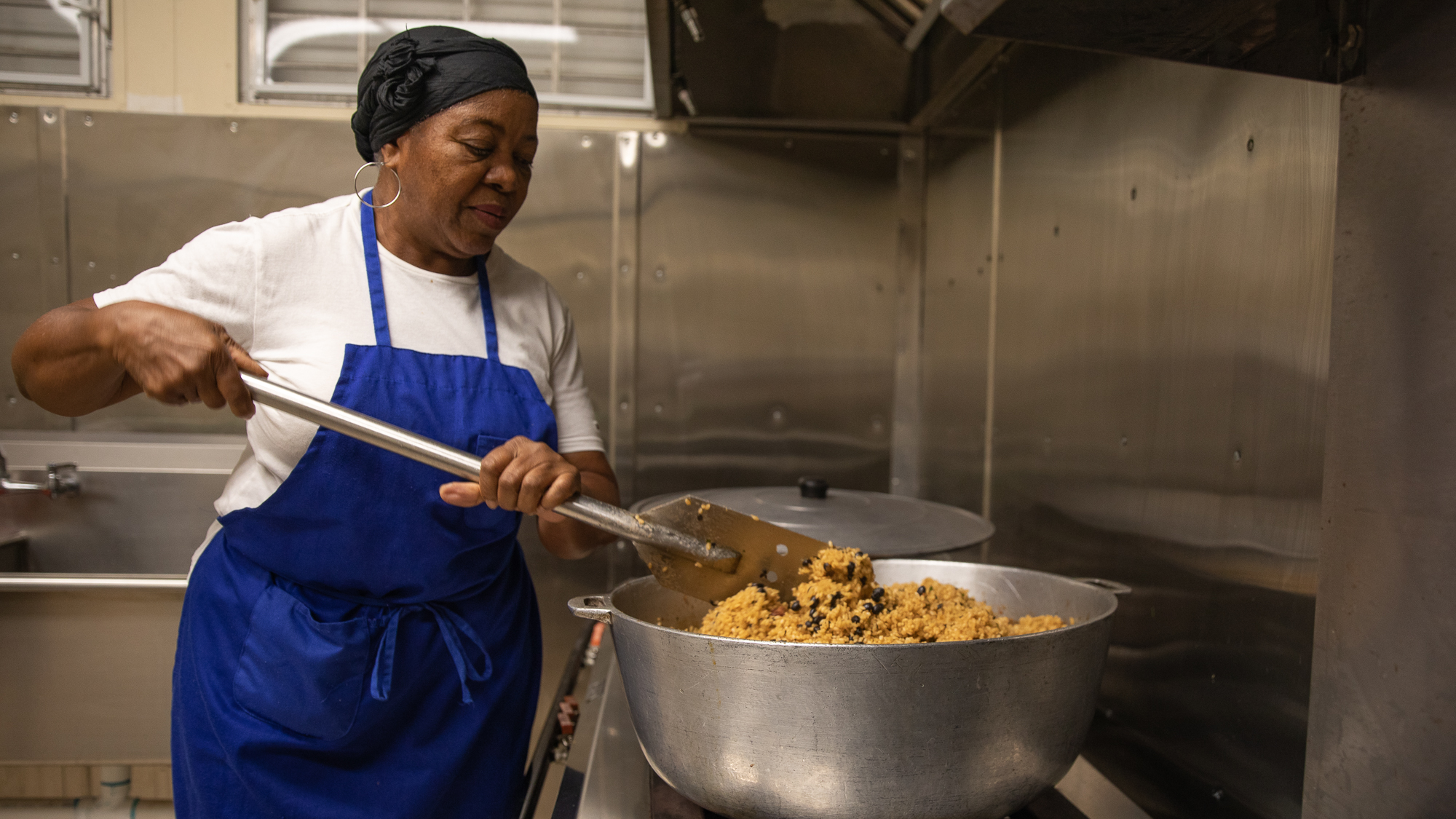
Maria Pizarro (65) has lived in Loíza her whole life. She is a retired cafeteria worker that has been volunteering at Villa Canona since November 2022. The town’s connection to its community is one of Pizarro’s biggest reasons to stay. She sees her service to her community as understated.

Villa Canona was founded to provide support to the community when the government was unable to. “We identify the problems, we look for solutions, we look for help to solve it, because the government is not going to come to do it for us.” said Rafael “Rafa” Rivera, the president of Villa Canona’s board.
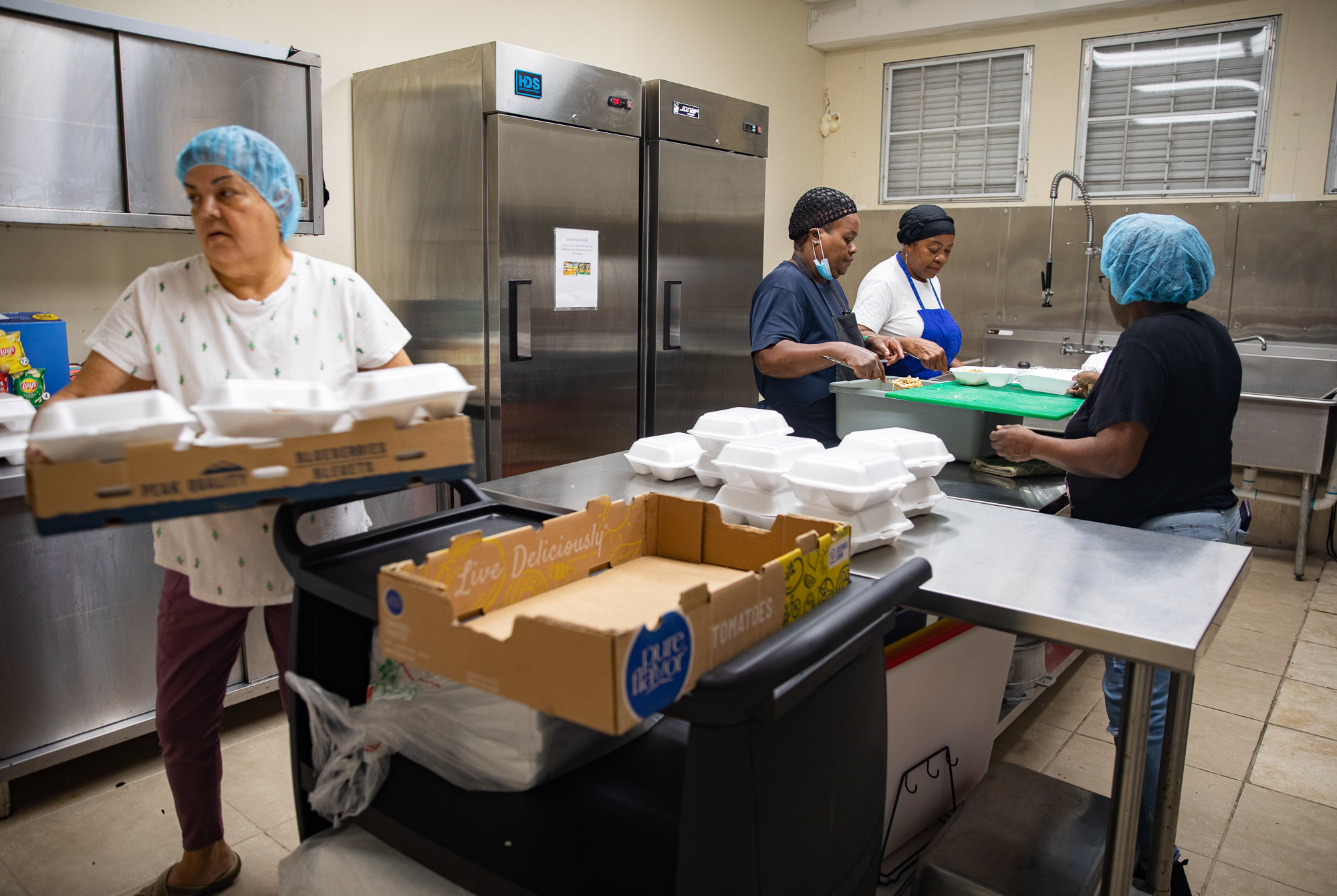
A group of retired school cafeteria staff volunteer to cook at Villa Canona every week. The meals are boxed and hand-delivered to the elderly population in Loíza on Tuesday and Wednesday mornings. They don’t serve for big reasons, they serve because they can — a privilege that some in their community dont have.
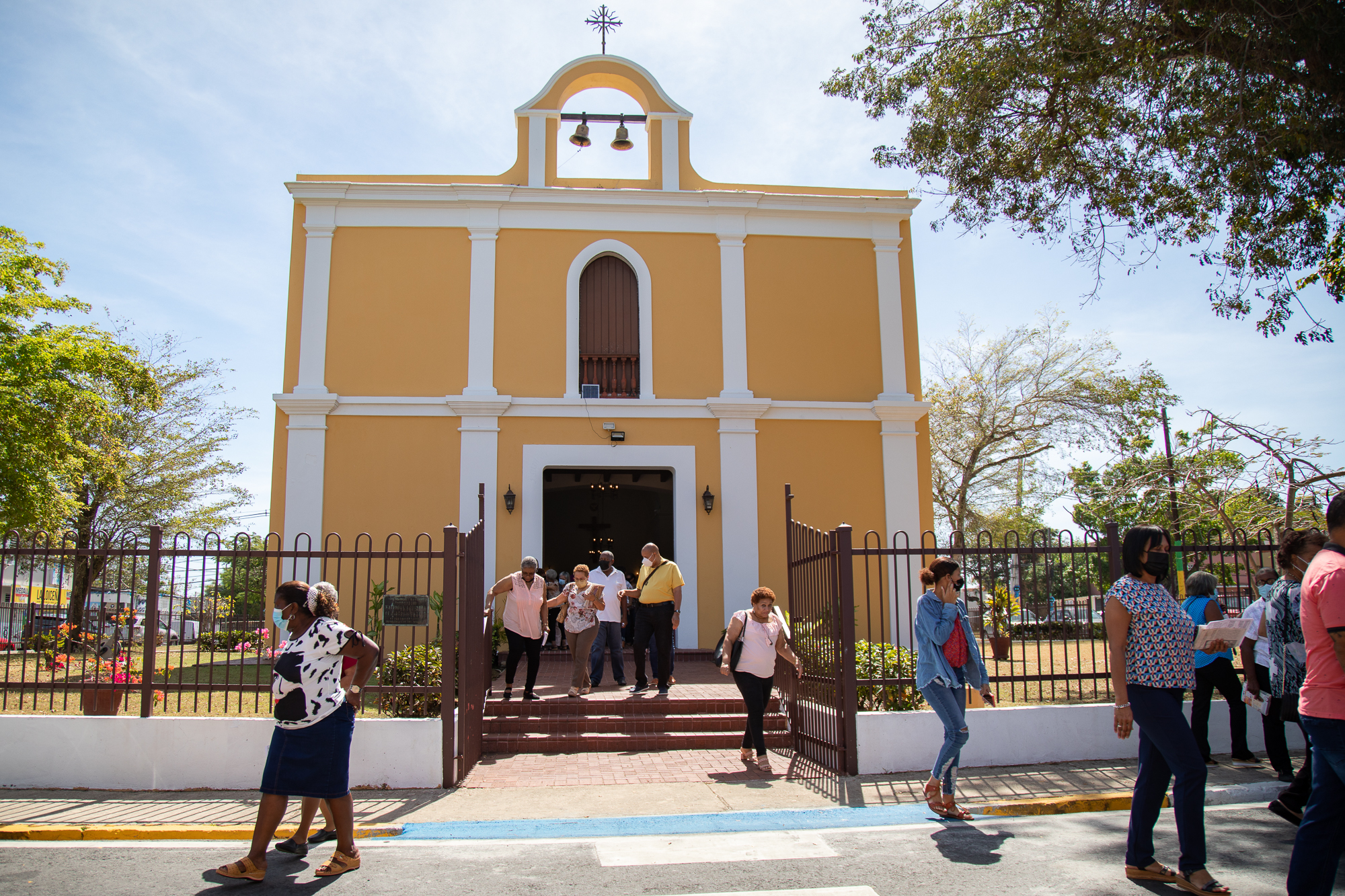
In the center of Loíza sits Parroquia del Espíritu Santo y San Patricio, the town’s Catholic church. Constructed in 1645, it is one of Puerto Rico's oldest churches. The church represents an ethnically distinct community characterized by a rich Afro-Hispanic cultural and folk-craft tradition.
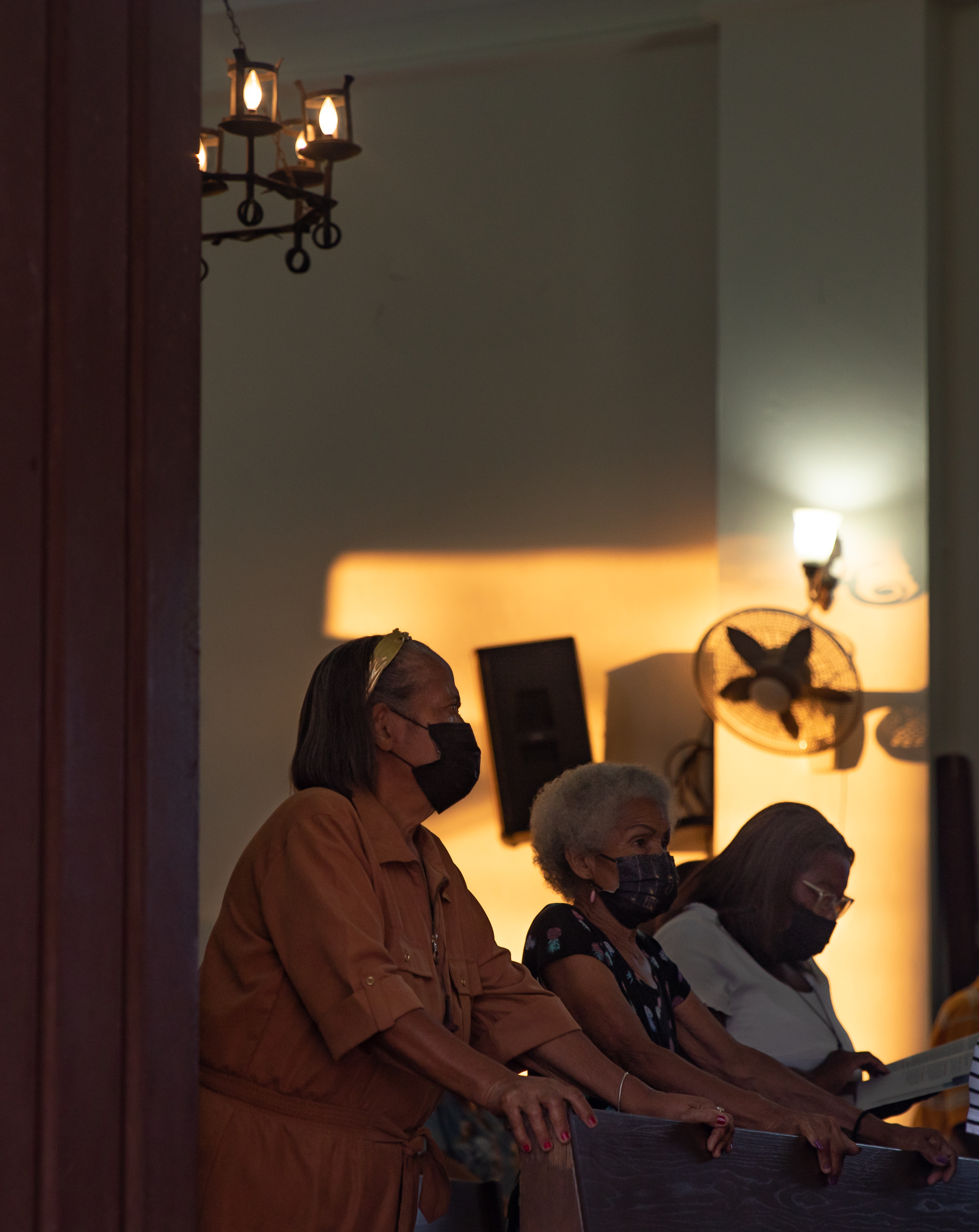
Three women worship during a Wednesday evening service. The community seeks not only to support each other outside of church, but also to worship together and strengthen their faith in their town center.
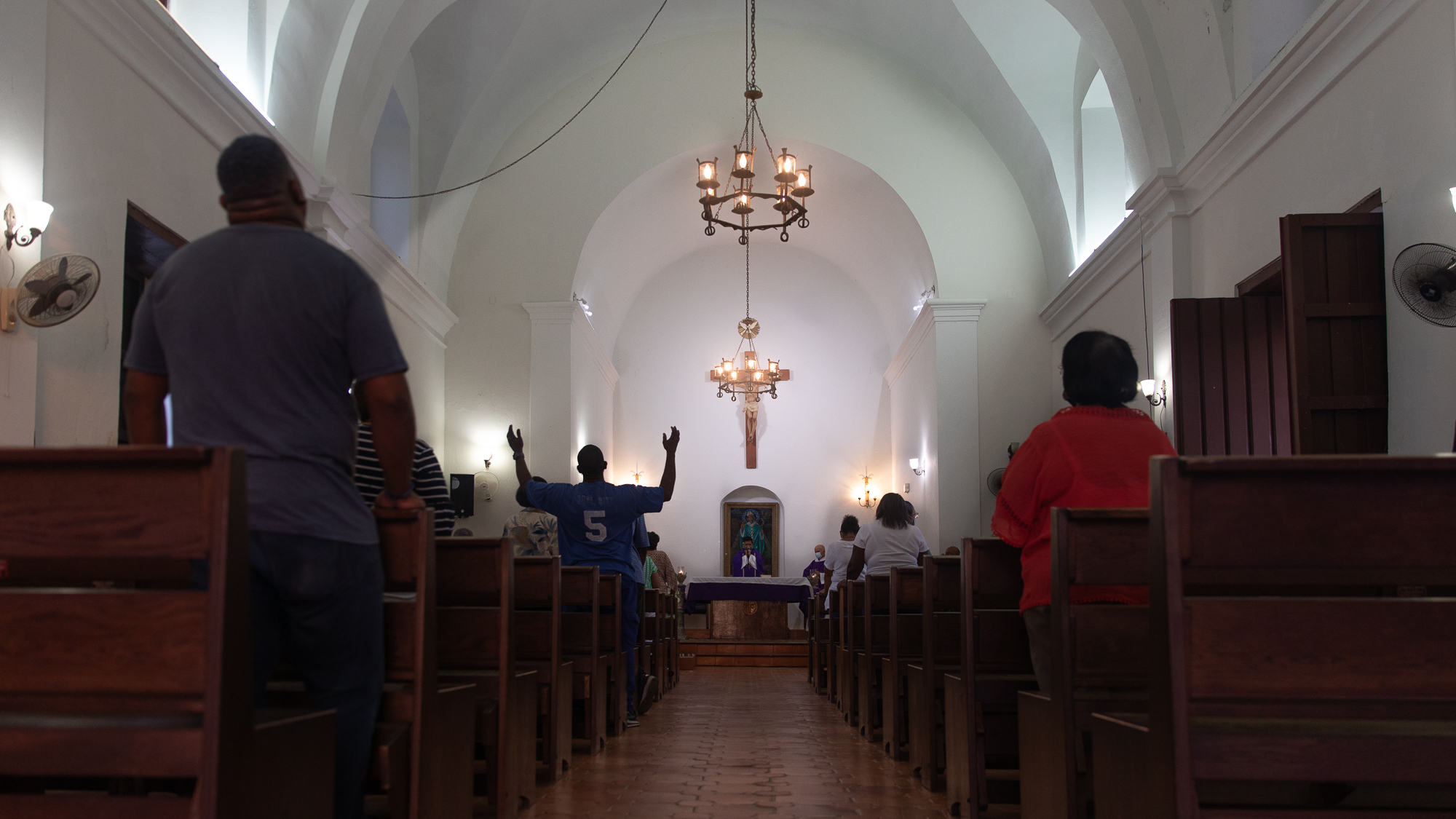
A priest leads Catholic Mass as a churchgoer raises his arms in worship. Throughout Puerto Rico, communities leaned on their faith to endure tragedies like Hurricane Maria and Irma, and Loíza is no different.
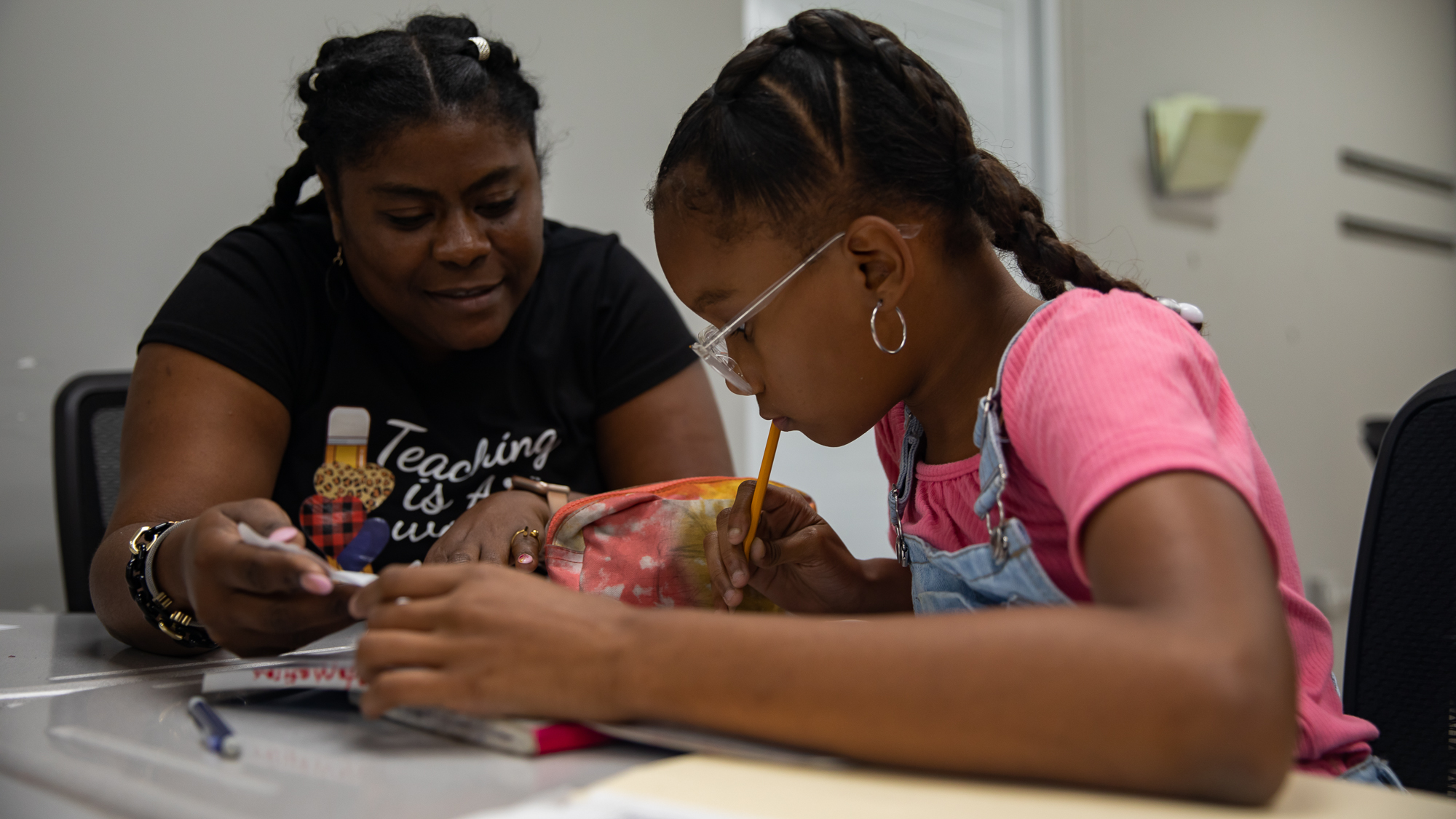
Doris (left) instructs Gretchalys, a fifth grader at Celso González Vaillant Elementary School in Loíza. Students who come to Villa Canones for tutoring receive individualized support in their education and emotional growth. Villa Canones serves students from elementary to high school.
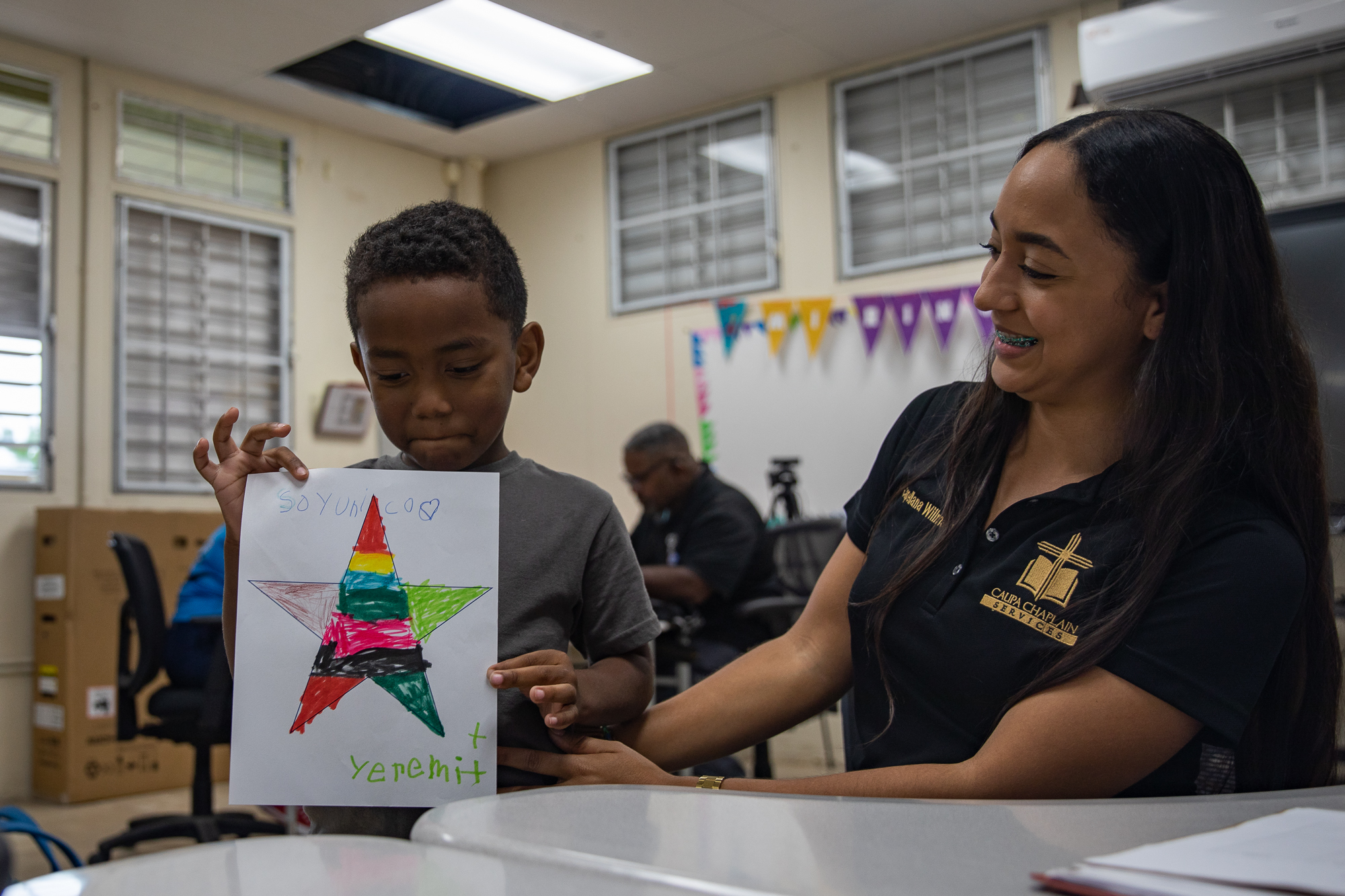
ENGLISH: Yeremith holds up a star that reads, “Soy único” or “I am unique,'' while Willamarie, the social worker for Villa Canones, smiles at him widely. In addition to educational tutoring, Villa Canones provides a safe space for children’s artistic expression in Loíza.
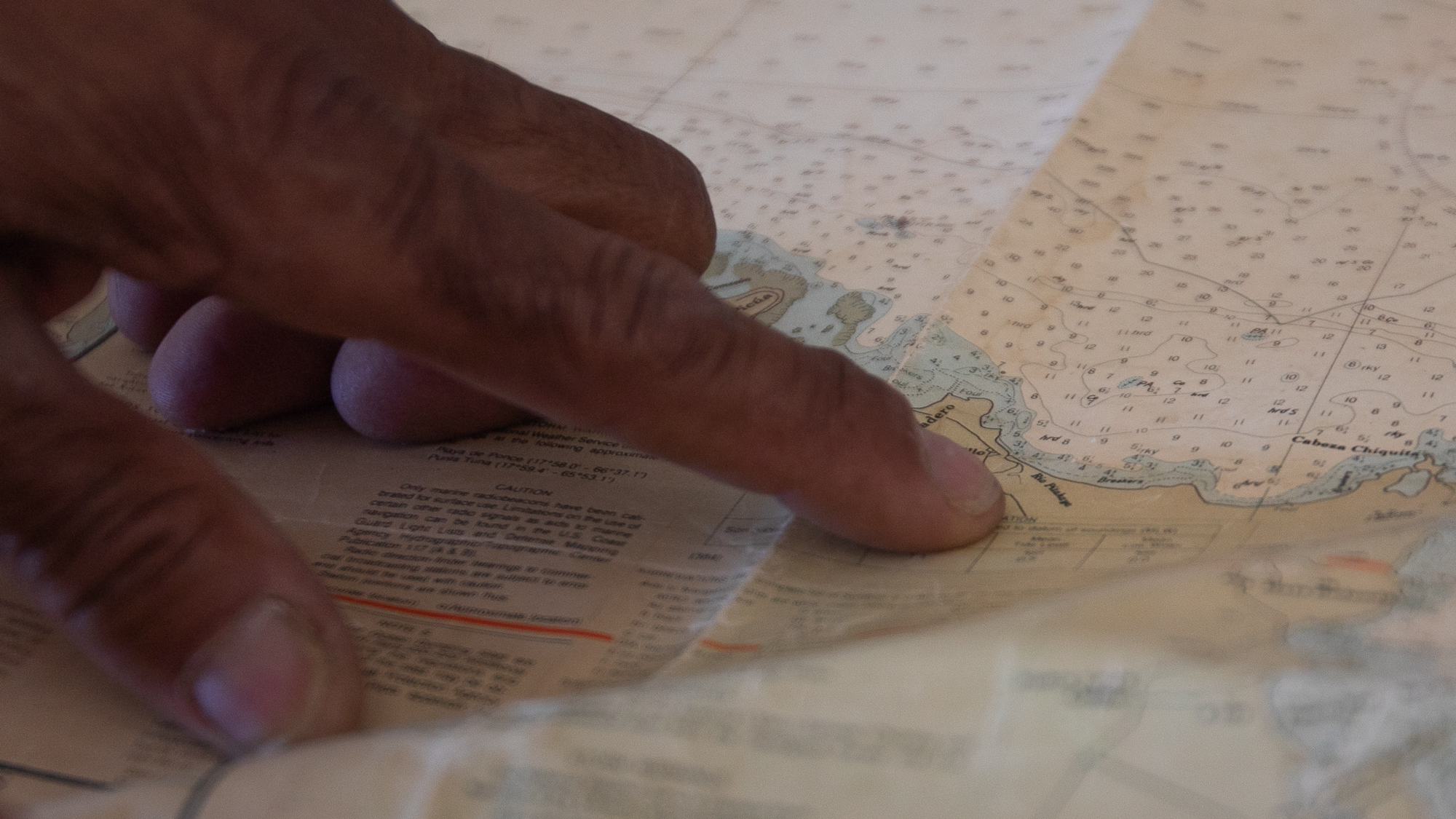
“Loíza is a town that is extremely cultural, with many deep roots, which does not allow a design to be easily separated from it,” Israel “Polpy” Díaz Rodriguez said. Loíza was founded by freed slaves and indigenous people in 1719, and their traditions and culture remains present today.
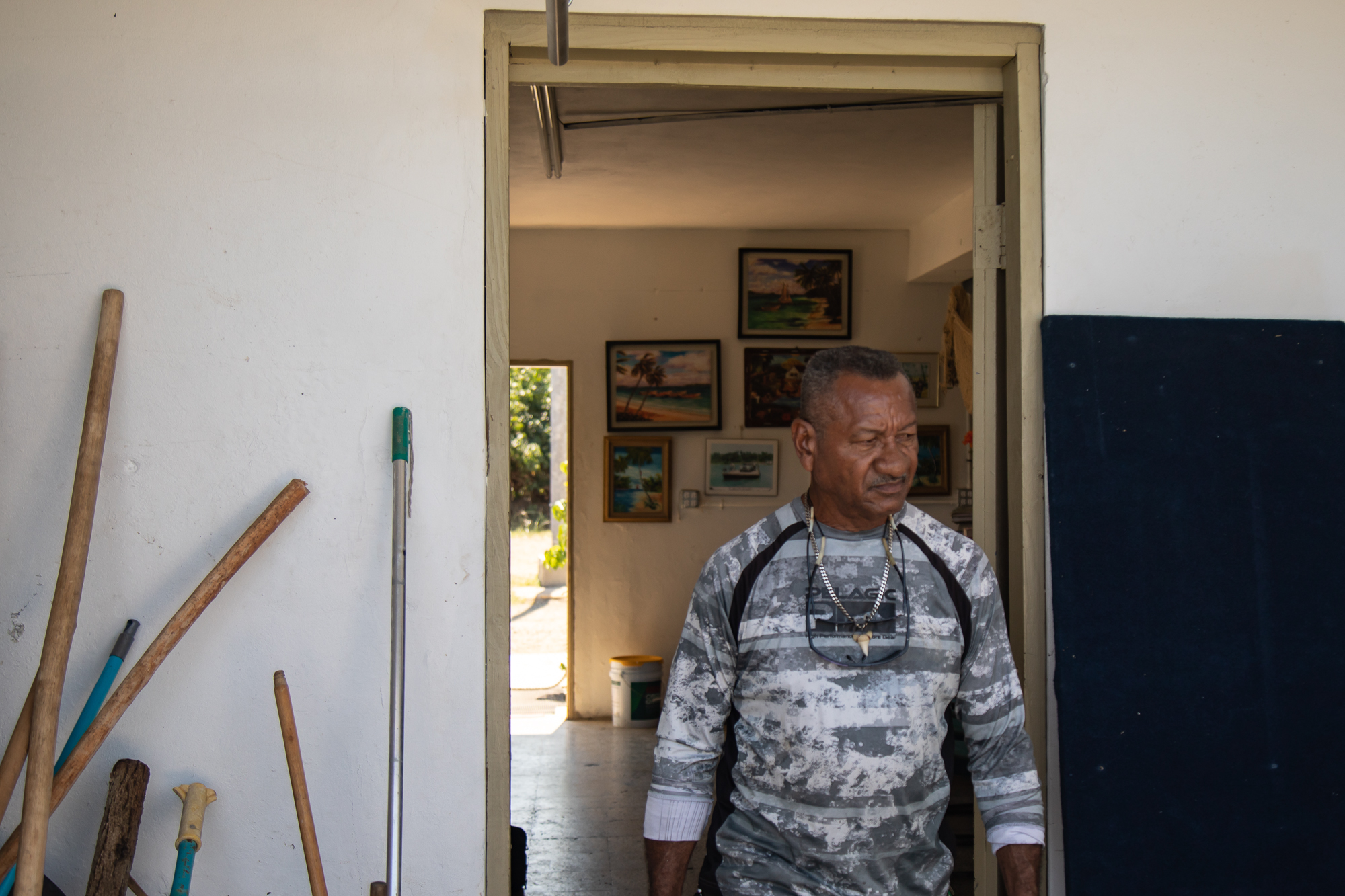
Rodriguez is a community pillar in Loíza for both his work as a fisherman and with the community group “El Ancon.” As a commercial fisherman, Rodriguez provides his community with fresh fish from the coast of the town.
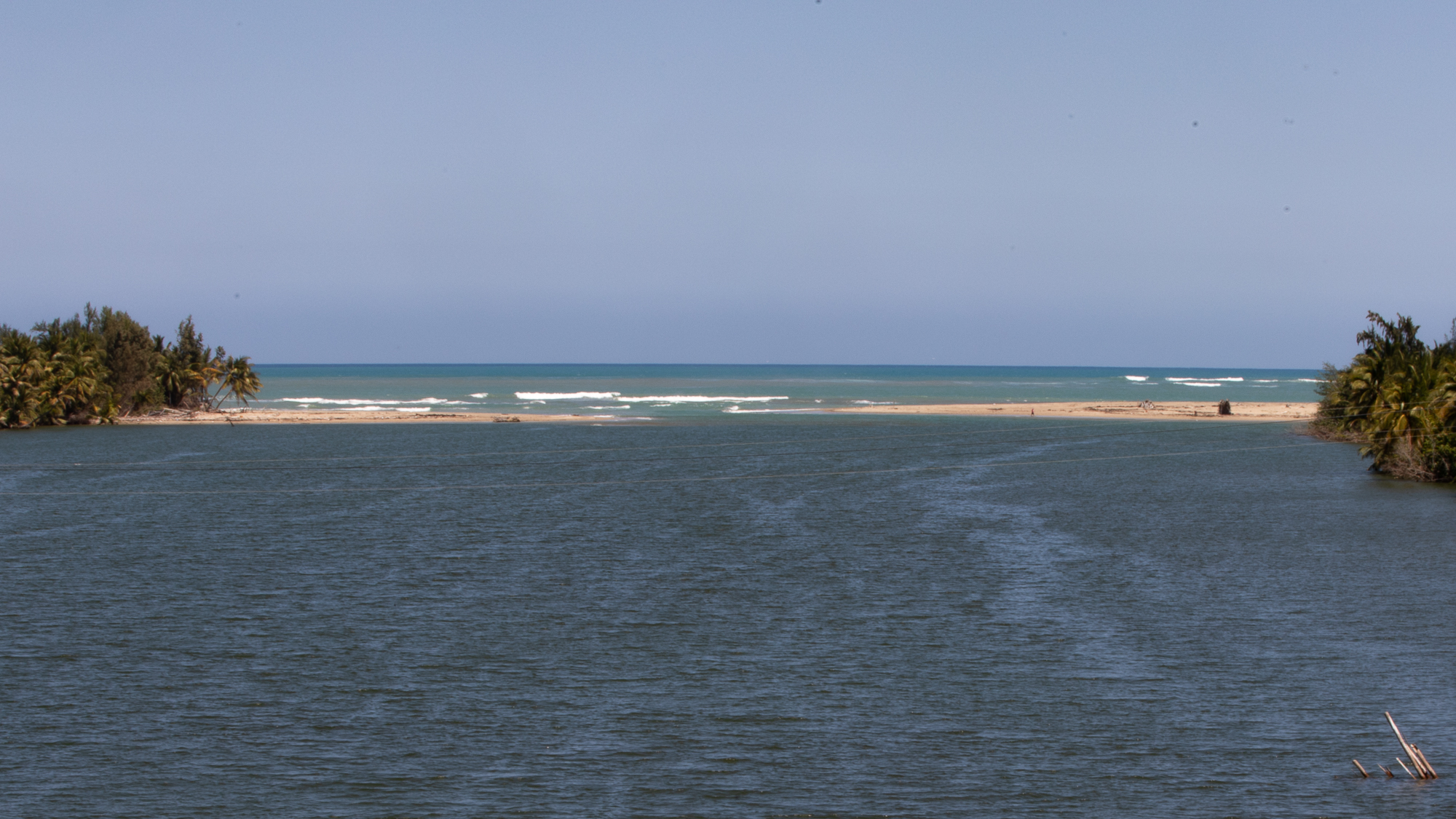
“We remain firm and resistant, because we have been forgotten all our lives by all the governments that have passed […] we are so strong and we are going to remain strong,” said Rodriguez. Loíza’s community is an example of Puerto Rico’s resistance in the face of adversity, and of the fortitude of a tight-knit community.